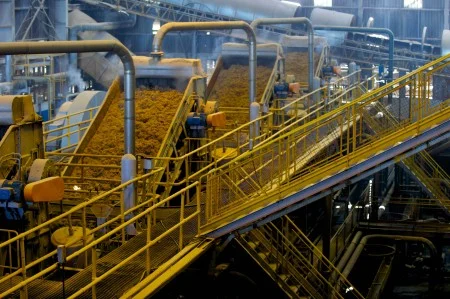Worldwide production of biofuels hit an all-time high in 2010, according to numbers released from Worldwatch Institute’s Climate and Energy Program.
The research shows that 105 billion liters of biofuels were produced last year, a 17 percent increase from 2009 figures. The rise was attributed to high oil prices, a global economic rebound and government mandates to produce the petroleum alternative.

One of the most popular biofuels is ethanol, which can be energy-intensive to grow but puts out less carbon dioxide than regular gasoline when used in vehicles.
The United States and Brazil are the two biggest producers of ethanol, with the United States producing 49 billion liters in 2010, 57 percent of all global output.
Led by Cosan, the world’s largest sugar and ethanol producer, Brazil produced 28 billion liters, or 33 percent of global output. Corn is the main feedstock for U.S.-produced ethanol, while sugarcane is Brazil’s main source.
The largest producer of biodiesel worldwide is the European Union, which accounted for the production of 53 percent of all biodiesel in 2010. Worldwatch said that number could shrink in future years as European countries, reacting to a report that ethanol is a more efficient energy producer, switch away from biodiesel.
Government mandates were one of the main reasons for the surge in biofuel production over the last few years. In Argentina, a new mandate required fuel to be 7 percent biodiesel and 93 percent diesel.
In the United States, the current subsidies are expected to decrease in coming years, which could mean Brazil’s sugarcane ethanol will surpass the amount of corn ethanol produced. That possibility has led to concern over deforestation in Brazil as more land is cleared for feedstock cultivation, Worldwatch said.






